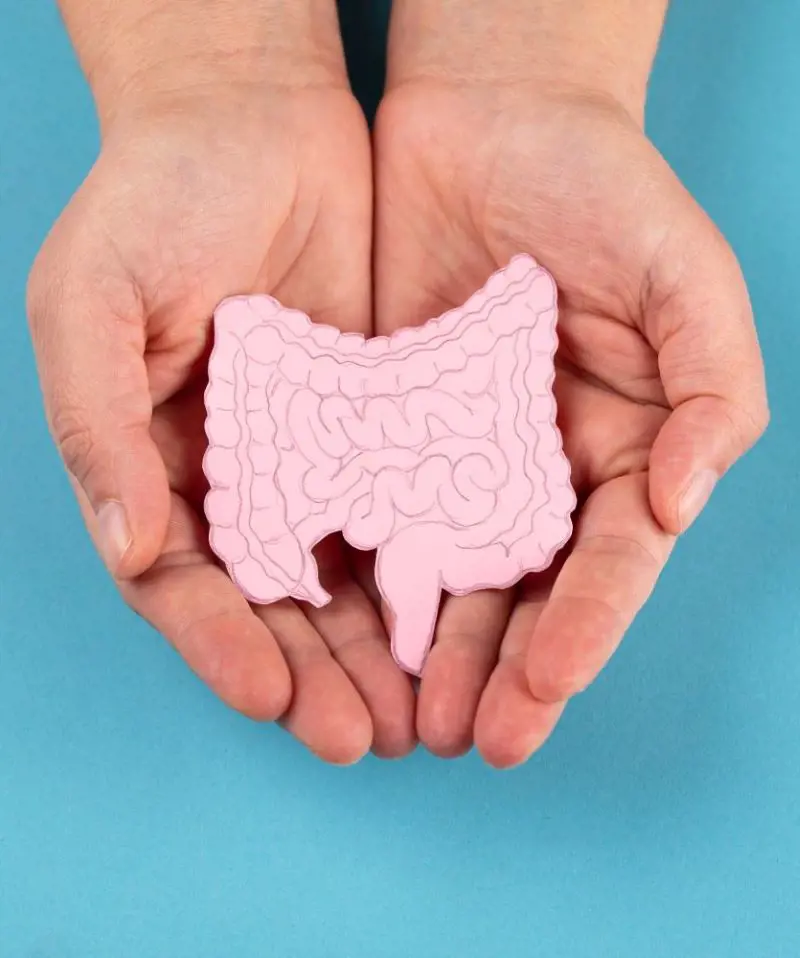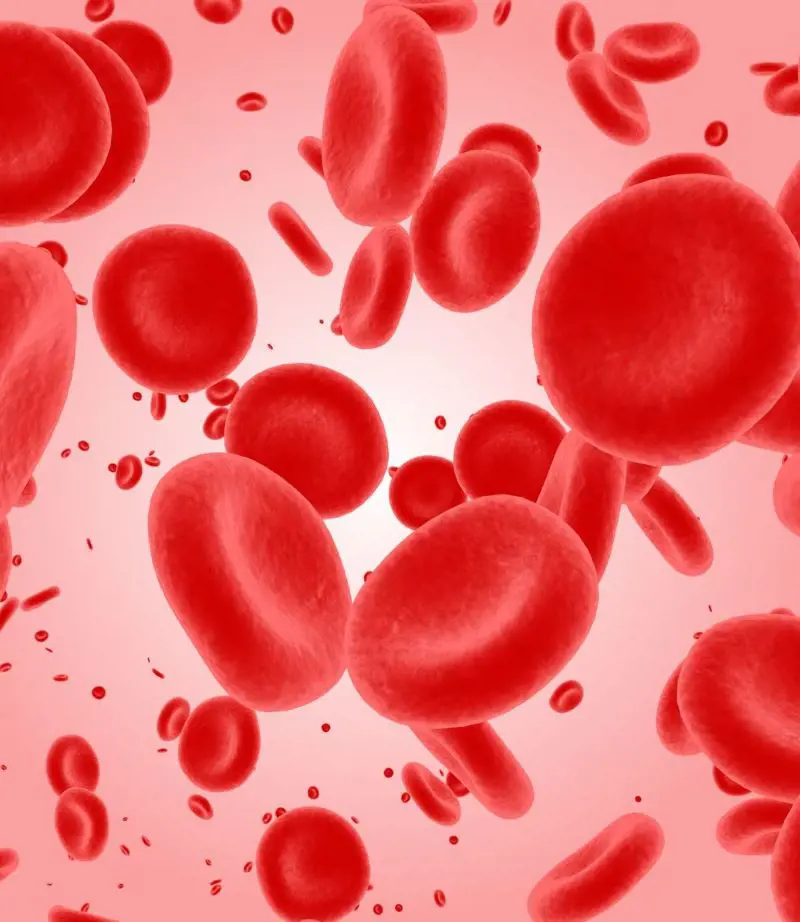12 Cayenne Pepper Benefits That Unveils The Healing Power

If you enjoy spice, you're likely familiar with the vibrant world of cayenne peppers. These slender chili peppers, scientifically known as Capsicum annuum, belong to the nightshade (Solanaceae) family. They share close relations with a diverse array of capsicums, such as poblanos, serranos, jalapenos, and ghost peppers.
Cayenne has a long history of medicinal use, serving not only as a culinary spice and food preservative but also providing various health benefits. From boosting metabolism to enhancing blood circulation, cayenne pepper offers more than just flavor. Continue reading to explore its positive effects further.
1. Excellent Source Of Capsaicin

Cayenne pepper, like other hot peppers, contains various compounds known as capsaicinoids, with capsaicin being the most abundant. High-dose supplementation or topical application of capsaicin may offer health benefits, including pain relief, improved athletic performance, and lower blood sugar levels.
Research indicates that capsaicin has anti-inflammatory and antioxidant properties. However, it's uncertain if the amounts of capsaicin in regular servings of cayenne peppers and other hot peppers provide significant benefits. More research is needed to fully understand how capsaicin from typical serving sizes of cayenne peppers influences health.
2. Boosts Antioxidant Activity

The antioxidants in cayenne pepper include vitamin C, vitamin E, choline, beta carotene, lutein, zeaxanthin, and cryptoxanthin (source of vitamin A). These antioxidants can defend against cellular damage caused by oxidative stress, which results from an imbalance between free radicals and antioxidant defenses in the body.
In a 2015 study, Capsicum annuum pepper varieties, including a type of cayenne pepper, displayed the highest antioxidant activity compared to other peppers, such as habanero-type peppers. Research suggests that a plant-rich diet with diverse antioxidants may protect against conditions like heart disease and contribute to a longer life.
3. Eases Cold Symptoms

People often use cayenne pepper in home remedies for coughs, congestion, and combating colds. A 2016 review found that capsaicin in cayenne pepper may relieve symptoms such as sneezing, a stuffy nose, and congestion when not caused by allergies or smoking, possibly by shrinking dilated blood vessels in the nose and throat.
In a 2019 study with 46 participants, researchers discovered that capsaicin nasal spray offered "significant rapid and sustainable relief" from the mentioned symptoms, provided allergies were not the cause. The positive effects began as early as 10 minutes after using the spray.
4. Boosts Metabolism

Capsaicin boosts your body's heat production, leading to a slight increase in your metabolism and causing you to burn a few more calories. A 2003 study revealed that women who consumed fresh chili peppers experienced an elevated metabolic rate for up to 30 minutes after eating them.
Metabolic rate influences how quickly the body converts food and drinks into energy. A faster metabolism is associated with a greater likelihood of converting nutrients into energy rather than storing them as fat. A 2010 study highlighted the ability of dihydrocapsiate, a capsinoid present in chili peppers, to potentially elevate metabolic rates.
5. Helps Manage Weight

Apart from boosting metabolism, cayenne pepper is believed to aid calorie burning due to its spiciness. Consuming a spicy pepper elevates your body temperature, triggering a cooldown response that burns calories. A study revealed that individuals who weren't fond of spicy food experienced improved weight loss results when they began taking cayenne capsules.
Moreover, a 2014 study found that individuals who ate red pepper with every meal experienced greater feelings of fullness and reduced cravings. The results suggest that incorporating capsaicin into your diet can curb appetite, potentially leading to lower caloric intake and increased weight loss.
6. Relieves Pain

Capsaicin in cayenne peppers may have pain-relieving properties by reducing the levels of substance P, a chemical that transmits pain messages to the brain. A 2016 review, exploring the potential of capsaicin in cream to alleviate pain, suggested potential benefits with long-term use.
Creams or ointments with 0.0125% purified capsaicin may ease osteoarthritis pain, as per a study. Applying the cream three times daily at pain sites benefited participants, though some experienced an unpleasant burning sensation as a side effect. The findings above specifically relate to the medicinal use of capsaicin and not its dietary application.
7. Eases Skin Issues

Capsaicin seems to possess antibacterial properties that help protect the body against Streptococcus pyogenes, commonly known as group A Streptococcus. These bacteria are responsible for various skin and soft tissue infections, including conditions like impetigo and cellulitis.
In a 2016 review, researchers concluded that capsaicin patches have the potential to alleviate itching associated with diverse skin conditions, such as psoriasis. These patches may also provide relief from itching caused by dialysis, a blood-purifying process used for individuals with kidney damage.
8. Promotes Healthy Digestion

While many associate spicy foods with heartburn or stomach upset, for many, spice can have the opposite effect. Cayenne pepper is beneficial for digestion as it boosts gastric juices and enzyme production in the stomach, aiding in the breakdown of food. It also promotes the growth of beneficial bacteria in the gut, contributing to improved gut health.
Capsaicin can promote a healthy microbiome, a community of bacteria in the gut crucial for a healthy immune system. It also aids in relieving constipation by stimulating intestinal movement and is believed to be helpful in eliminating ulcers.
9. Anti-Cancer Properties

While research is still in its early stages, some studies indicate that capsaicin has anti-cancer properties, potentially preventing the spread of cancer cells to other tissues. There's suggestive evidence that capsaicin, present in cayenne pepper, may hinder cell proliferation and, therefore, help prevent breast cancer.
Additional studies indicate that capsaicin has the potential to manage prostate cancer. Moreover, capsaicin exhibits diverse anti-tumor abilities, offering potential benefits in treating cancer in the breast, prostate, colon, and lung. Consuming cayenne pepper may consequently contribute to preventing various types of cancer.
10. Improves Vision

Cayenne pepper is rich in vitamins A and C, essential for preserving eye health and vision. A fresh cayenne pepper alone meets about 48% of daily vitamin A needs and 72% of daily vitamin C requirements. In powdered form, it still offers nearly 15% of daily vitamin A requirements per teaspoon, although processing may slightly reduce its vitamin content.
Moreover, antioxidants like lutein in cayenne pepper contribute to preventing inflammatory diseases and minimizing damage from free radicals. Consequently, cayenne pepper serves as a protective agent for your eyes against infections and diseases.
11. Increases Blood Flow And Circulation

Due to the presence of capsaicin, cayenne pepper can help promote blood flow to tissues by reducing blood pressure and triggering the release of nitric oxide, along with other vasodilators. These compounds collectively aid in expanding your blood vessels.
In fact, spicy peppers are commonly featured in pain-relieving creams because their consumption contributes to increased circulation, enhanced blood vessel strength, and a reduction in plaque buildup in the arteries.
12. Improves Heart Health

Cayenne peppers support heart health in several ways. Capsaicin, found in cayenne peppers, has been shown to defend against inflammation in the body, which is linked to various diseases, including cardiovascular ones. Additionally, cayenne peppers help maintain healthy blood vessels and lower blood pressure.
Regular consumption of chili peppers is associated with a decreased risk of heart-related problems like heart attacks and strokes. Using cayenne pepper as a seasoning can also reduce the need for salt, benefiting heart health, especially for those with high blood pressure. Increasing your intake of cayenne pepper may be a helpful way to cut back on salt consumption.
Cayenne Pepper: Nutrition Facts

Cayenne peppers and other types of hot peppers are nutrient-rich and can be a healthy addition to your diet. Here's the nutritional breakdown for 1 tablespoon (5.3 g) of cayenne pepper:
- Calories: 16.9
- Protein: 0.636 g
- Carbohydrate: 3 g
- Fiber: 1.44 g
- Calcium: 7.84 mg
- Iron: 0.413 mg
- Magnesium: 8.06 mg
- Phosphorus: 15.5 mg
- Potassium: 107 mg
- Sodium: 1.59 mg
- Manganese: 0.106 mg
- Vitamin C: 4.05 mg
- Folate: 5.62 mcg
- Choline: 2.73 mg
- Vitamin A, RAE: 110 mcg
- Carotene, beta: 1160 mcg
- Vitamin A, IU: 2200 IU
- Lutein + zeaxanthin: 700 mcg
- Vitamin E: 1.58 mg
- Vitamin K: 4.26 mcg
Cayenne pepper is high in provitamin A carotenoids like alpha-carotene and beta-carotene, which the body can turn into active vitamin A. Plus, they are loaded with vitamin C, vital for immune health, and crucial in collagen production, iron absorption, and neurotransmitter synthesis.
While cayenne peppers are nutritious, their strong spicy taste limits most people to small portions. Yet, regularly having a little cayenne could boost your intake of essential nutrients.
Recent posts
Nutrition
Nutrition
Licorice Root: Benefits And Uses
You can spell it liquorice or licorice; this herb or root has been in use for centuries in most medicinal applications, as a natural sweetener and to enhance flavors. Regarding its origins, it comes from the root of the "Glycyrrhiza galbre" plant and...
Nutrition
Is Salmon Good For You? Nutritional Facts and Benefits
Salmon fish is a staple diet throughout the world, popular as a super food for its nutrients. Whether savored in sushi, poached, grilled, roasted, or pan-fried, salmon offers minerals and vitamins that contribute to healthy bodily functions. In addit...
Nutrition
25 Smoked Salmon Recipes That You Will Enjoy
Salmon is a silver-colored fish that is loaded with many nutrients, vitamins, and omega-3 fatty acids. Smoked Salmon is better for improving your health and reducing the risk of cancer, heart-related diseases, fights inflammation, reduces anxiety and...
Nutrition
Are Sausages Healthy? Nutrition And Health Benefits
Sausages are tasty in an addictive way, making them one of the most popular foods worldwide. You may have enjoyed this convenient food often, whether on a bun with mustard or grilled on a barbecue, the simple preparation methods are what makes its co...
Nutrition
20 Vegetables That Are Rich In Iron
Iron is essential for our bodies to function well. When we don't get enough iron, we often feel weak and tired. It's important to address iron deficiency early by eating the right foods. Fortunately, many vegetables are rich in iron and can help prev...
Nutrition
15 Cauliflower Nutrition Facts And Health Benefits
Cauliflower, a cruciferous vegetable, resembles a white variation of its relative, broccoli. Like broccoli, it has closely bunched florets attached to a thick core, often surrounded by a few leaves. While white is the most common color, cauliflower i...








